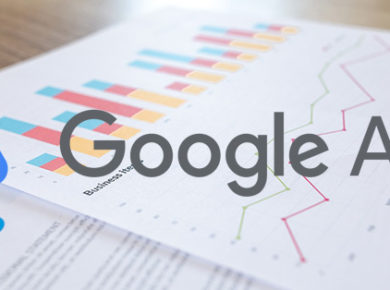It’s been barely two months since Libra was first announced, but the cryptosphere and much of the wider world has been in near-meltdown ever since. A google search for the cryptocurrency brings up close to 60,000,000 results and, at the time of my writing this piece, five articles have been published in last hour covering the nascent cryptocurrency.
For crypto outlets, interest in Libra appears to stem mainly from a desire to cover the industry’s latest ‘hot topic.’ For mainstream outlets, however, the coverage reflects a growing unease surrounding Facebook’s ability to influence our behavior and impact the societies in which we live.
London Summit 2019 Launches the Latest Era in FX and Fintech – Join Now
An example of this fear came in May of this year when Chris Hughes, one of Facebook’s founders, wrote an op-ed in the New York Times calling for the social media company to be broken up. Hughes’ argument has been echoed by various politicians, notably Democratic presidential candidate Elizabeth Warren, who told Wired last week that she wants “to break Facebook up and the other big tech giants.”
Dismantling Facebook won’t do anything
Warren’s statement may represent a simple sort of populism or a genuine desire to prevent the company from becoming too big. But, in either case, breaking up Facebook won’t solve the problems that people have with the technology behemoth.
Ultimately, people’s fear of Facebook stems from its business model. Like almost every ‘free’ internet service, Mark Zuckerberg’s company relies on taking as much of its users’ data as possible so that it can then provide better services to the advertisers that, as opposed to you and me, are its real customers. More data means more personalized ads. More personalized ads mean more interest from advertisers. More advertisers mean more money for Facebook.
Aside from taking your private information and selling it to people, Facebook also has an interest in keeping people on its platform. The more time you spend browsing through your newsfeed, the more ads you will see and, hopefully for the social media company, the more likely you are to buy something.
To ensure that you do that, the company has developed an array of casino-like strategies to keep people hooked on its platform. Things as simple as red notification signals, ‘like’ buttons and anticipation-inducing delayed loading times are all used to make people spend more time on the firm’s social media platform.
It’s in the business model
As creepy, intrusive, and annoying as all of these things may be, dismantling Facebook is not going to stop them.
Back in 1911, Standard Oil was broken up into 34 different companies after it was declared an illegal monopoly by the US government. At the time, people were not concerned with Standard Oil’s business model – they needed and wanted oil – but by its business practices, which essentially precluded any other companies from entering the US oil market.
Conversely, if Facebook were to be broken up into 34 companies, those entities would still be using the same business model, taking as much of your data and attention span as possible, that make people fear and dislike the social media giant today.
This is not to say that people shouldn’t be wary of Facebook or Libra – in fact, the opposite is true. But instead of focusing on taking the company apart, regulators should be looking at the social media giant’s way of doing business.
I Voted!
There is a good reason for this. The ad-revenue driven business model that Facebook operates under means that it has to continue to manipulate its users so that they will spend more time using its ‘services.’ This is bad enough when it comes to social media advertising but it could be made exponentially worse when money and payments are involved.
As an illustration of this, we can look at Facebook’s own efforts at manipulating election cycles. Researchers at the social media company found in 2010 that, simply putting an image of one of their friends at the top of users’ news feeds, alongside a piece of text saying ‘I Voted!’, made 340,000 people go to vote who, without being nudged into casting their ballots, may not have otherwise done so.
These sorts of capabilities, when put into a system that allows a user to hold cash and make streamlined payments, may allow Facebook to nudge users into buying products they don’t need or want. Perhaps further down the line, it could be used to make them take out loans or use other financial services provided by the social media giant.
Learning from ESMA
That should worry regulators. It’s true that banking applications and other forms of financial technology are becoming increasingly popular. It’s doubtful, however, that any of them will be able to have a hold on people’s attention in the same way that Facebook does. And without that attention, they won’t be able to manipulate people in the same way the social media giant does.
But regulators, whether they realize it or not, actually have some experience in putting a damper on behavioral manipulation in the financial services world.
Last August, the European Securities and Markets Authority introduced regulations governing the retail trading industry that banned specific marketing practices, capped the amount of leverage that brokers could offer clients and forced those same brokers to put risk warnings on their websites.
Since then, most European Union countries have made those rules permanent, albeit with the occasional minor deviation from ESMA’s original ones.
‘Degamifying’ Facebook
As Finance Magnates reported in February of this year, ESMA’s laws effectively put an end to the trading world’s era of ‘gamification.’ From the mid-2000s up until August of last year, brokers had been using casino-style tactics to induce traders to part with as much money as possible.
High leverage was used to make it seem as though you could easily get rich quick. Adverts featuring fast cars, scantily clad women, and wads of cash served to bolster that image. And push notifications, instant trading, sign-up bonuses and trading competitions often made brokers seem more akin to bookmakers or slot machines than financial services firms.
Whether you agree with them or not, ESMA’s rules put an end – mostly – to that sort of behavior. The parallel here with Facebook is worth noting. Breaking up big brokers wouldn’t have achieved what ESMA wanted because the casino-style business model, which is what the regulator objected to, would have still been in place.
Though many in the retail trading world may not like the rules, there is no doubt that they largely achieved their goal. The degamification of retail trading, along with a reduction in client losses, is what ESMA wanted – not the destruction of the brokerage industry.
“80 percent of users waste their lives on this site”
When it comes to Facebook, regulators across the globe could take a page out of ESMA’s book. Apart from this author, there aren’t many people that want to destroy Facebook entirely. Instead, they want the social media giant to act more responsibly.
That can be achieved by designing regulations which restrict its ability to manipulate users and churn through their personal data. The European Union’s General Data Protection Regulation, which was introduced last year, is a good start to dealing with the latter problem.
But when it comes to preventing user manipulation, regulators will have to think more deeply about what is acceptable and what is not. Facebook will also have to start being more transparent about how its user experience teams entice people to stay glued to their platform. But who knows? Maybe one day Facebook will be required to have an ESMAesque, “80 percent of users waste away their lives on this site” risk warning at the bottom of its news feed.











